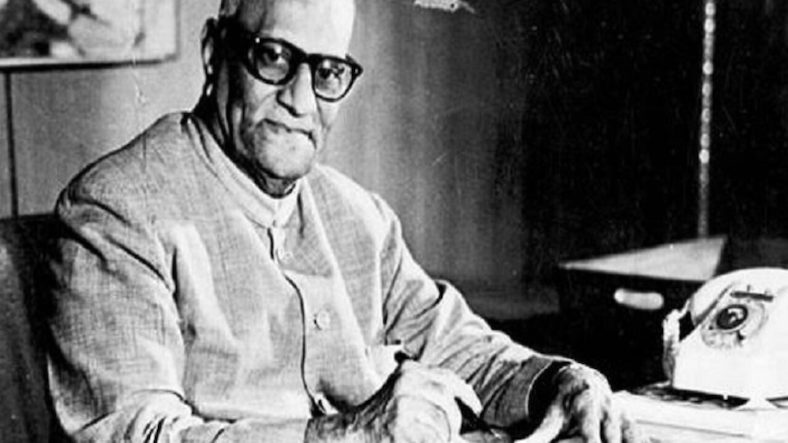Varahagiri Venkata Giri, widely known as V. V. Giri, was one of the most influential political figures in India’s early post-independence years. As the fourth President of India, his career reflected the complex political atmosphere of the 1960s and 1970s. Beyond his presidency, Giri was also a committed trade union leader, freedom supporter, administrator, and statesman who shaped labour policies and public institutions.
Early Life and Background
V. V. Giri was born on August 10, 1894, in Berhampur, which was then part of the Madras Presidency under British rule and is now in the state of Odisha. He grew up in a middle-class family that valued education and public service. His early environment shaped his interest in political awareness and national issues.
Education
Giri studied at Khallikote Autonomous College in Berhampur. He later joined Banaras Hindu University, one of the leading educational institutions of the time. His exposure to academic and political ideas during his student years helped him build a strong foundation for public service and activism.
Career in Civil Service and Labour Movement
1. Indian Civil Service
Giri joined the Indian Civil Service (ICS) in 1919 when the British government administered India. He served in several administrative positions. However, during this period he increasingly became sympathetic toward workers’ issues and national concerns.
2. Role in the Trade Union Movement
One of the most important phases of his early career was his involvement in the labour movement. Giri became deeply active in trade union work and fought for workers’ welfare, rights, and fair treatment. He later became associated with the All India Railwaymen's Federation, one of the strongest trade unions in the country.
His leadership brought him national recognition as a determined and knowledgeable advocate of labour rights. This phase marked his emergence as an independent public figure willing to challenge administrative decisions when they affected workers negatively.
3. Service in the Governor-General’s Bodyguard
During his early professional life, Giri also served in the Governor-General’s Bodyguard, one of the prestigious security forces of the British Indian administration. This role added to his varied administrative experience.
Political Life After Independence
After India became independent in 1947, V. V. Giri entered national politics. His work in the labour sector led to appointments in important ministries.
Union Minister
Giri served as the Minister of Labour in the Government of India. During his term, he focused on labour laws, industrial relations, and welfare reforms. His background as a trade unionist helped him understand the needs of both workers and industries, and he worked to create balanced policies.
Rise to High National Office
1. Vice President of India (1967–1969)
In 1967, V. V. Giri was elected as the Vice President of India. This position placed him directly in the heart of national administration. His experience in government and politics helped him handle the responsibilities with confidence.
2. Acting President
After the death of President Zakir Hussain in 1969, V. V. Giri took charge as the Acting President of India. His leadership during this period led him toward the next major step in his political journey.
The Presidential Election of 1969
The presidential election of 1969 was one of the most unusual and controversial elections in Indian history. V. V. Giri contested the election as an independent candidate, even though the ruling party had already declared its official nominee.
Prime Minister Indira Gandhi indirectly supported Giri, leading to a major political split within the government and the Congress party.
Victory as an Independent Candidate
Giri won the election, becoming the fourth President of India. His victory represented a significant shift in Indian politics, reflecting the growing independence of political leaders from party authority. It marked a moment in Indian history when parliamentary alliances and political strategies changed dramatically.
Google Ad 1
Presidency of V. V. Giri
V. V. Giri served as the President of India during one of the most tense and politically active periods in the country. His term witnessed major national developments, political conflicts, and constitutional debates.
Focus Areas During His Presidency
-
Strengthening constitutional processes
Giri emphasized the importance of constitutional authority and the role of the presidency in maintaining democratic balance. -
Handling political instability
His tenure included disagreements within the Congress party, reshaping political alliances, and growing friction between different political groups. -
Working with the government during challenging times
Although the Emergency (1975–1977) was declared after he left office, many of the political developments leading up to it started during his presidency.
Resignation and Unexpected Return
In 1974, V. V. Giri resigned from the post of President. His decision was influenced by differences with then Prime Minister Indira Gandhi. He believed that going back to the public for a fresh mandate would strengthen the office of the President.
Second Presidential Election Attempt
In the same year, he contested the presidential election again as an independent candidate. He received support from several opposition parties and won the election. This made him one of the rare Indian presidents to hold two non-consecutive terms.
His political comeback showed the depth of trust many leaders placed in him.
Final Years and Death
After completing his second term, Giri continued to be active in public affairs but gradually withdrew from political life. He passed away on June 24, 1980, in Madras (now Chennai). He lived a long life marked by service, leadership, and dedication to public welfare.
Legacy of V. V. Giri
V. V. Giri remains an important personality in India’s political and labour history. His contributions shaped the country in several ways:
1. Champion of Labour Rights
His work with trade unions continues to influence labour policies and industrial relations in India.
2. Independent Leadership
Running and winning elections as an independent candidate made him a symbol of political self-reliance.
3. Constitutional Influence
As President, he played a central role in managing one of the most politically turbulent periods in India.
4. Inspiration for Public Service
His journey from Odisha to the highest office in India reflects how commitment, discipline, and public service can shape a nation.
Conclusion
V. V. Giri was not just a President of India. He was a reformer, administrator, union leader, and statesman whose influence extended far beyond his presidential terms. His role in shaping Indian labour laws, his unique presidential journey, and his contributions to the nation make him an important figure in India’s political history.
Thank you for reading about this great personality on PeoplesBLOG. For more inspiring life stories, explore our other articles on Indian leaders, reformers, and historical icons.










